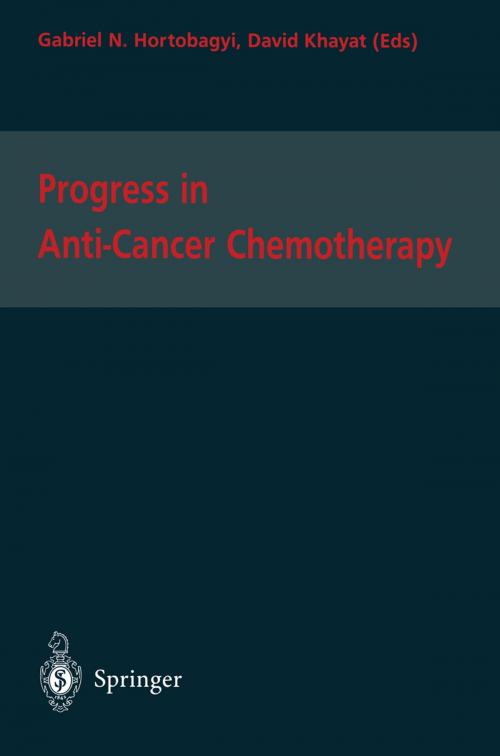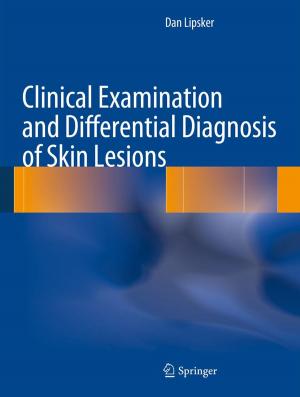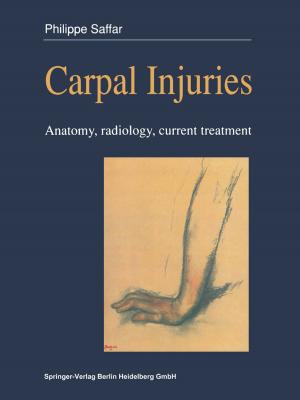Progress in Anti-Cancer Chemotherapy
Nonfiction, Health & Well Being, Medical, Specialties, Oncology| Author: | Gabriel N. Hortobagyi, David Khayat | ISBN: | 9782817809182 |
| Publisher: | Springer Paris | Publication: | April 17, 2013 |
| Imprint: | Springer | Language: | English |
| Author: | Gabriel N. Hortobagyi, David Khayat |
| ISBN: | 9782817809182 |
| Publisher: | Springer Paris |
| Publication: | April 17, 2013 |
| Imprint: | Springer |
| Language: | English |
This is the third volume of our series Progress in Anti-Cancer Chemo therapy. Following the strategy of the first two volumes, it covers selected aspects of progress in this fast moving field of Oncology, with contribu tions from some of the world's best known leaders in both basic and clin ical research. This year we focused on seven areas: Three prominent Clinical investigators reviewed conceptual advances in cancer research. Dr Buzdar presented a history and overview of the protection of human subjects who participate in clinical research, and the mechanisms developed to assure the ethical conduct of research on human beings. Frei reviewed an exciting and rapidly moving area of che motherapy of solid tumors, including a cogent discussion of the issues related to dose-intensification. Fisher summarized conceptual advances in our therapeutic approach to breast cancer and the paradigm shifts that lead us to our current management strategies. From this summary he pro jected breast cancer research into the future, a daunting task under any circumstance. Fundamental research in cancer biology has been responsible for our improved understanding of the development and progession of malignant disease. Such understanding will lead to improved diagnosis, therapy, and eventually, prevention. Isaacs reviews the area of hereditary breast cancer, a topic undergoing rapid transformation and with mUltiple impli cations in the daily practice of medicine. Fidler, an international expert in metastasis research reviews the potential utility of angiogenesis inhib itors in research and the therapeutic ramifications.
This is the third volume of our series Progress in Anti-Cancer Chemo therapy. Following the strategy of the first two volumes, it covers selected aspects of progress in this fast moving field of Oncology, with contribu tions from some of the world's best known leaders in both basic and clin ical research. This year we focused on seven areas: Three prominent Clinical investigators reviewed conceptual advances in cancer research. Dr Buzdar presented a history and overview of the protection of human subjects who participate in clinical research, and the mechanisms developed to assure the ethical conduct of research on human beings. Frei reviewed an exciting and rapidly moving area of che motherapy of solid tumors, including a cogent discussion of the issues related to dose-intensification. Fisher summarized conceptual advances in our therapeutic approach to breast cancer and the paradigm shifts that lead us to our current management strategies. From this summary he pro jected breast cancer research into the future, a daunting task under any circumstance. Fundamental research in cancer biology has been responsible for our improved understanding of the development and progession of malignant disease. Such understanding will lead to improved diagnosis, therapy, and eventually, prevention. Isaacs reviews the area of hereditary breast cancer, a topic undergoing rapid transformation and with mUltiple impli cations in the daily practice of medicine. Fidler, an international expert in metastasis research reviews the potential utility of angiogenesis inhib itors in research and the therapeutic ramifications.















